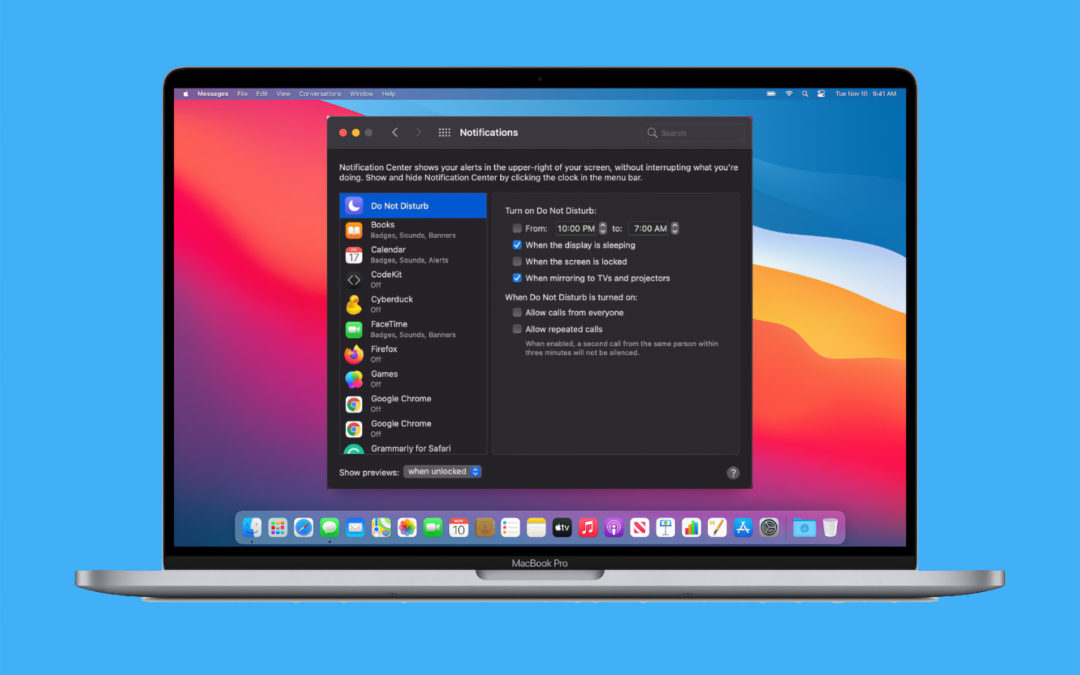Here are all the possible solutions to fix your Mac if it is not alerting you of new notifications by showing a banner in the top right corner of the screen or playing the notification sound.
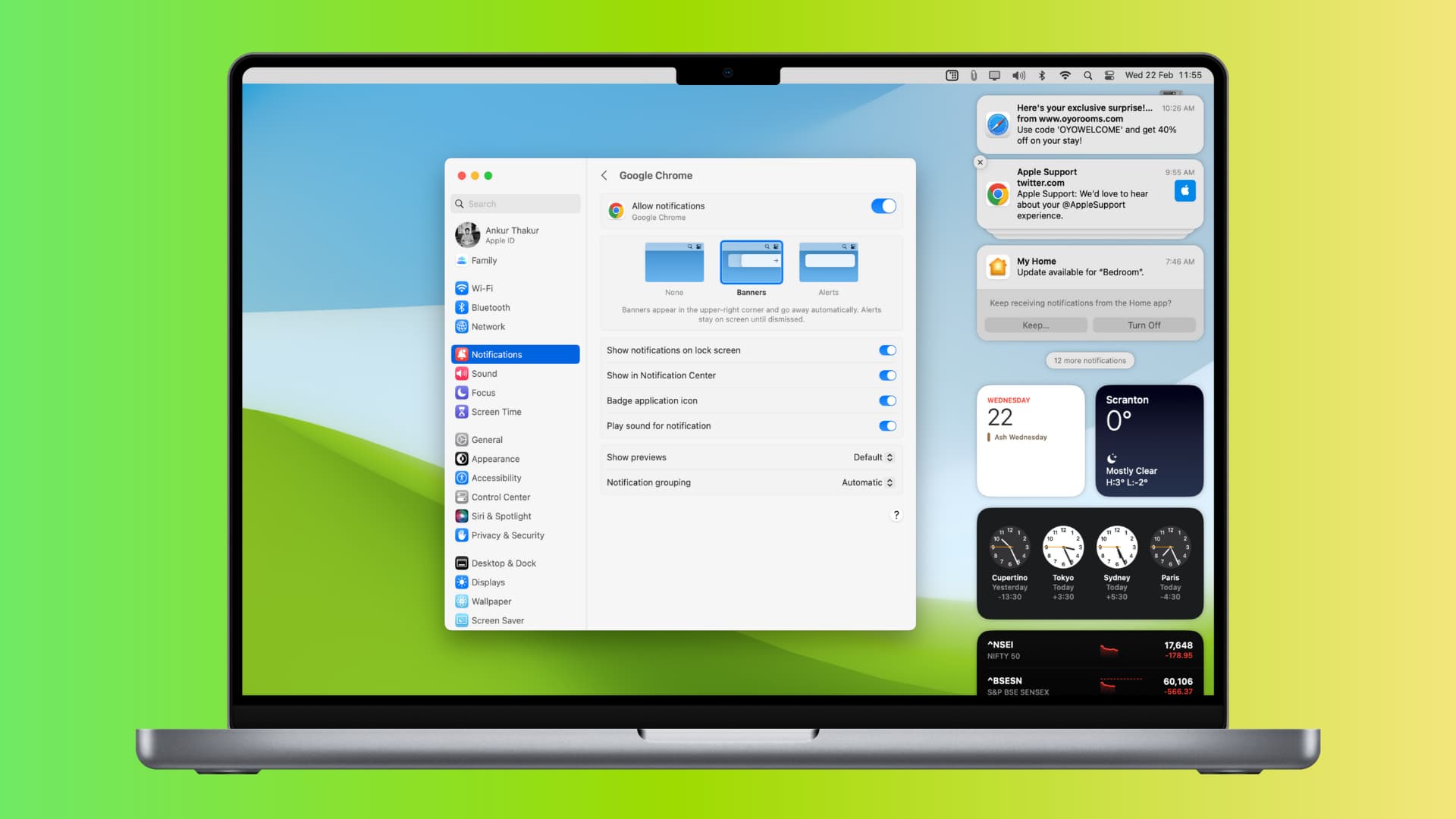
The problem
- No app alerts: You’re not getting new notifications from apps like Slack, Teams, Basecamp, Zoom, Messages, WhatsApp, and such.
- No notifications from websites: Safari, Chrome, Firefox, or other web browser is not sending you website notifications.
- No sound: You see a notification banner on your Mac but hear no alert sound.
- No message banner: You hear the new notification sound but do not get the notification banner in the top right corner of your Mac’s screen.
The solutions below will help fix all the problems mentioned above and ones similar to them.Solutions to fix no notification on Mac:hide1) Turn off Do Not Disturb or Focus2) Make sure individual app notifications are enabled3) Check in-app notification settings4) Unmute the conversation in apps like Messages and Slack5) Check browser notification settings6) Increase your Mac’s system volume7) Check the sound output speaker8) Restart your Mac9) Update Mac apps10) Delete and reinstall the app11) Turn off Low Power Mode
Turn off Do Not Disturb or Focus
- Click the Control Center icon from the menu bar.
- If the top right tile shows the Do Not Disturb (DND) or Focus icon in purple or any other color, that means you have enabled DND or a Focus like Sleep or Work, and because of this, you’re not getting any notification.
- To turn off DND or Focus, click the Focus tile to expand it and then click the enabled Focus name. After this, the Focus icon will turn black, signifying it’s not active.
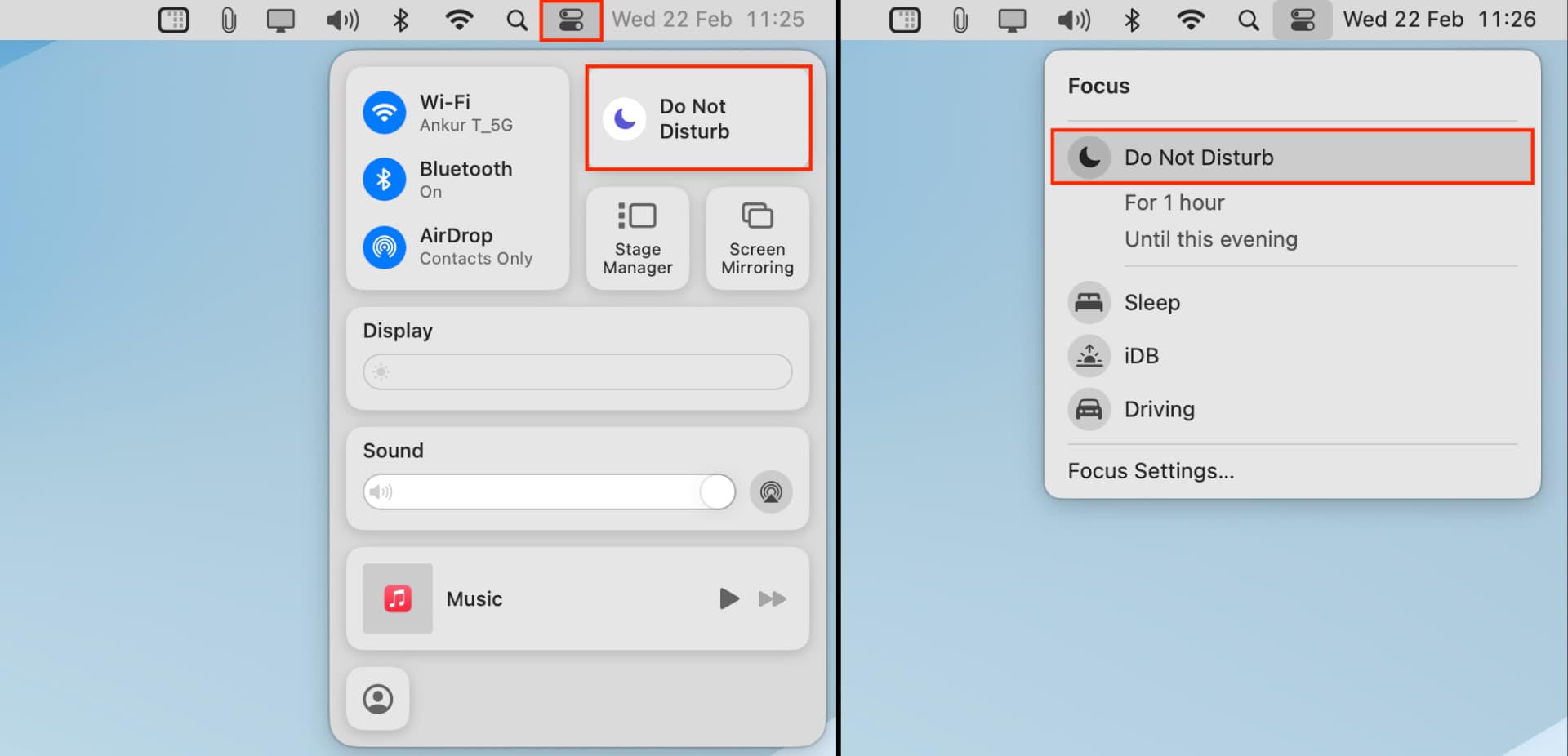
To manage DND and Focus, go to System Settings > Focus.
Make sure individual app notifications are enabled
- Open System Settings and click Notifications.
- Select the app whose notifications you’re not getting.
- Enable the switch for Allow notifications.
- Make sure the Banners option is selected. Note: Banners disappear after a few seconds, Alerts stay on the screen until dismissed, and None ensures you get no visual notification.
- Next, enable the switch for ‘Play sound for notification.’
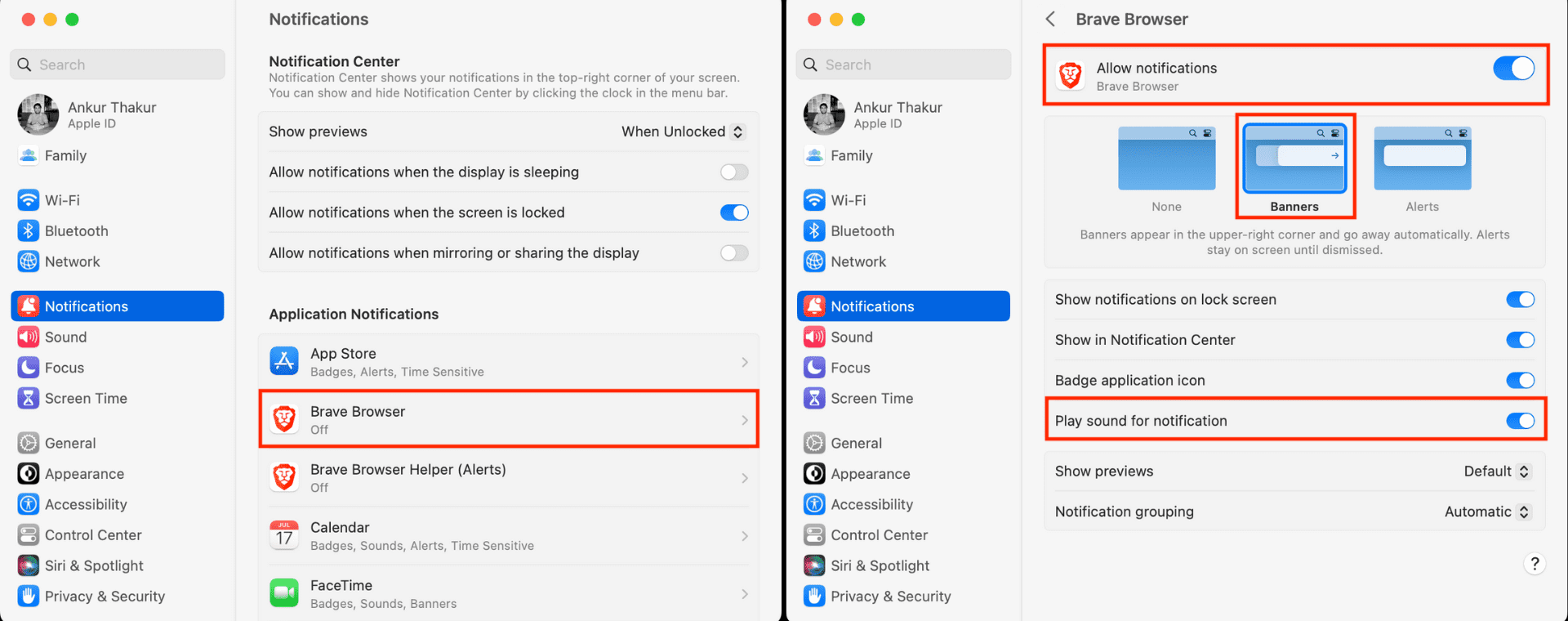
Besides the options I explained in the above steps, you can customize other settings like showing the notification on the lock screen and Notification Center or putting a red badge over the app icon in Mac’s Dock and Launchpad.
Related: How to view, pause and stop notifications on Mac
Check other notification settings
Go to System Settings > Notifications. From here, you can:
- Choose to show the message previews when your Mac is unlocked, always, or never.
- Allow notifications even when the display is sleeping, the screen is locked, or you’re mirroring or sharing your Mac’s display.
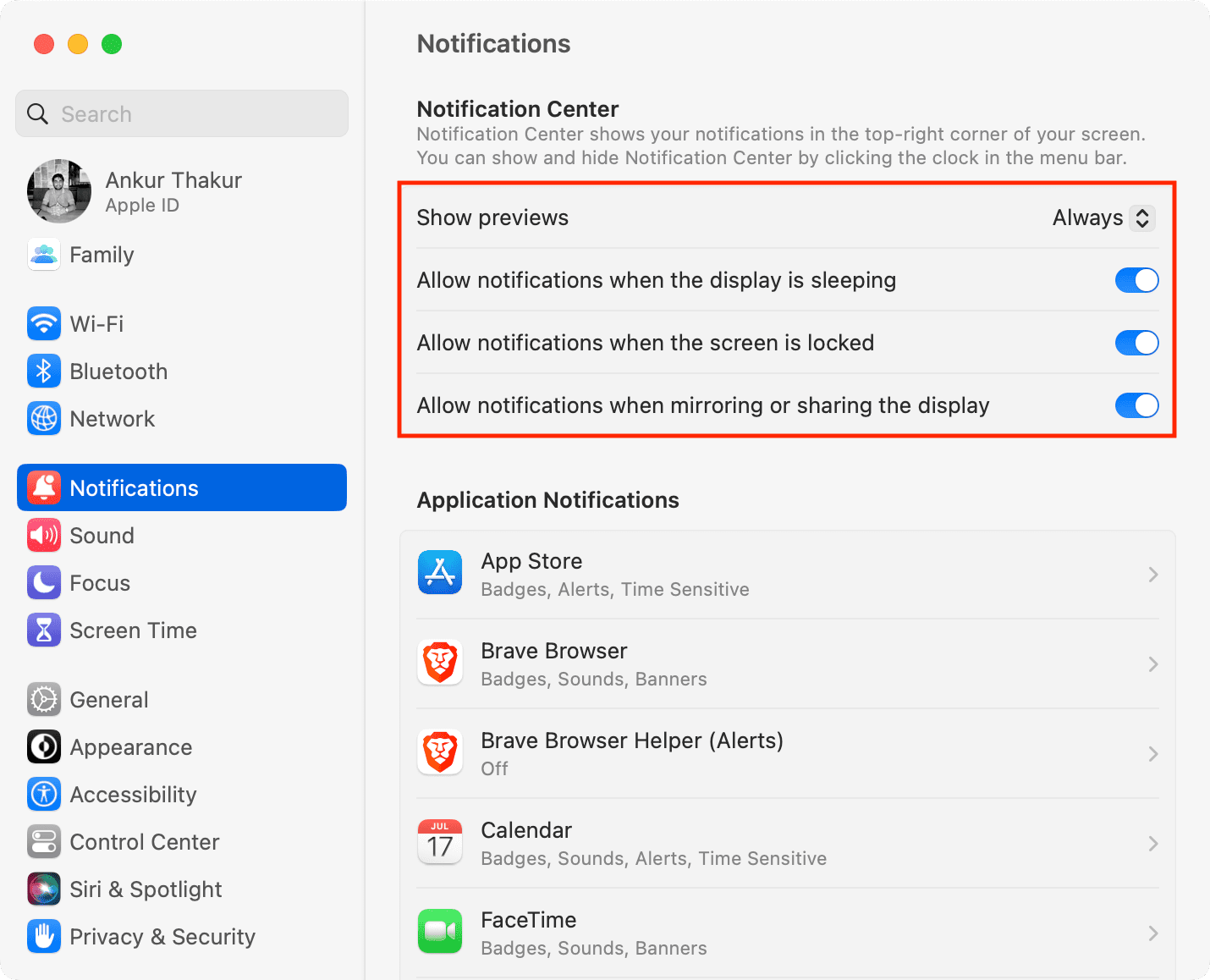
Check in-app notification settings
Some Mac apps like Slack, WhatsApp, and Telegram have internal settings to control the notification. Follow these steps if you’re not receiving new incoming notifications from a particular app:
- Open the app in question and go to its settings. Almost all macOS apps allow you to go to their settings by clicking the app name next to the Apple icon and selecting Settings/Preferences. Alternatively, you can also press the Command + Comma (,) keys.
- Next, look for the notifications settings and make sure it’s enabled.
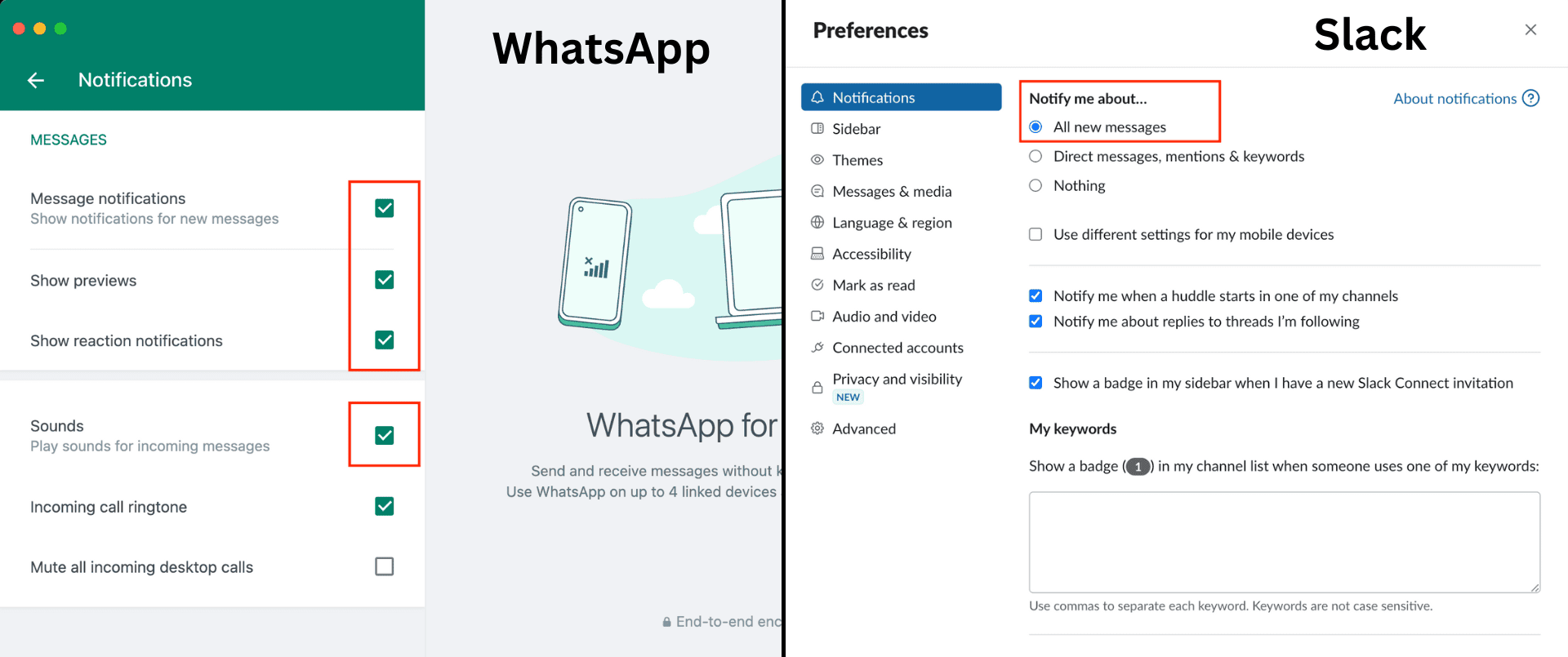
Unmute the conversation in apps like Messages and Slack
Were you bombarded with a slew of messages in a group or Slack channel, and then you muted all new alerts from that conversation? In that case, open the said app and unmute that group text or allow all notifications from that channel.
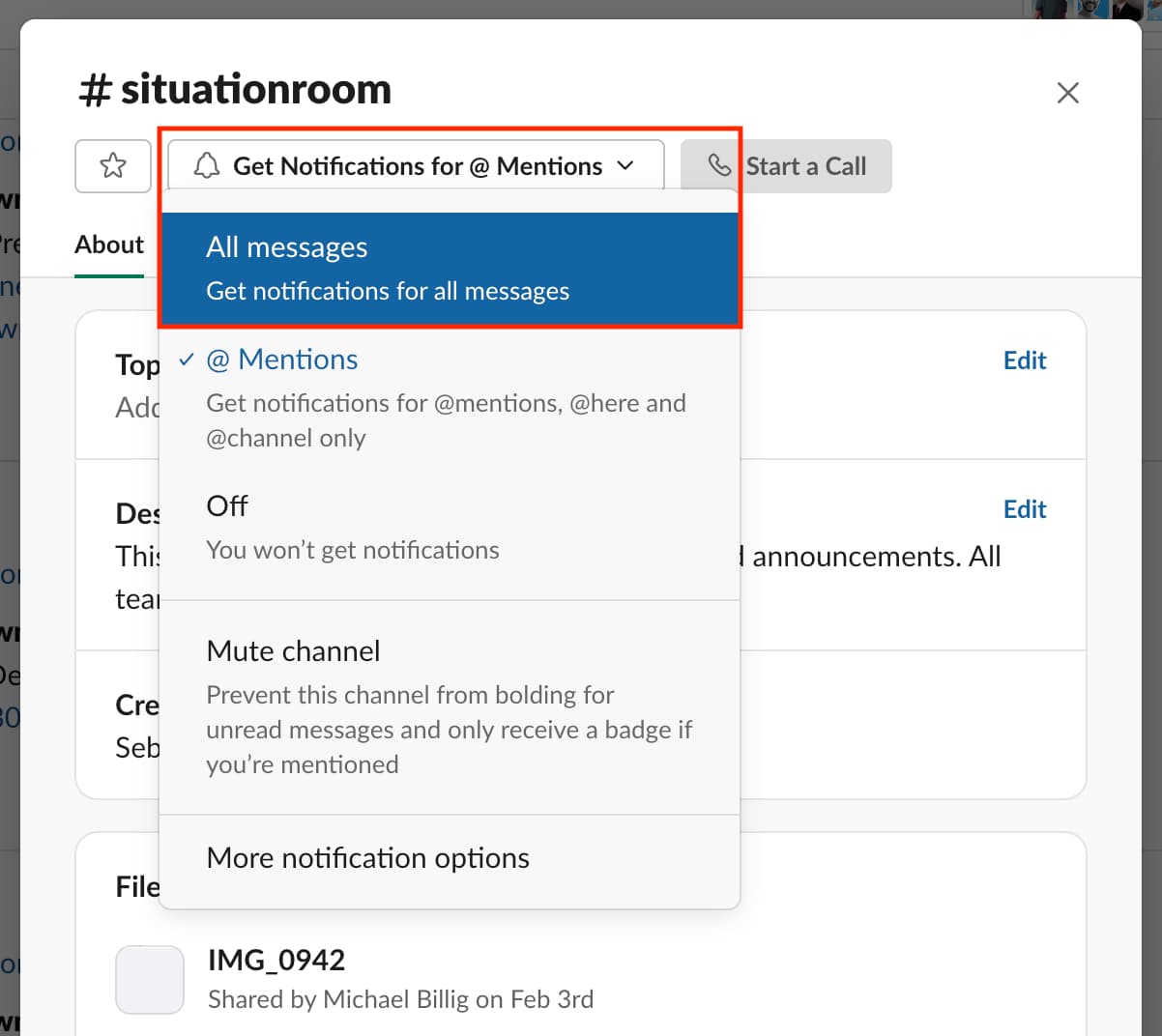
Check browser notification settings
For all websites
It’s up to you whether you want to allow a website to notify you or not. But for this to work, you should set your web browser to allow websites to ask your permission to send notifications. Here’s how to do that:
Safari: Open Safari, and from the menu bar, click Safari > Settings. Now go to Websites > Notifications and check the box for ‘Allow websites to ask for permission to send notifications.’
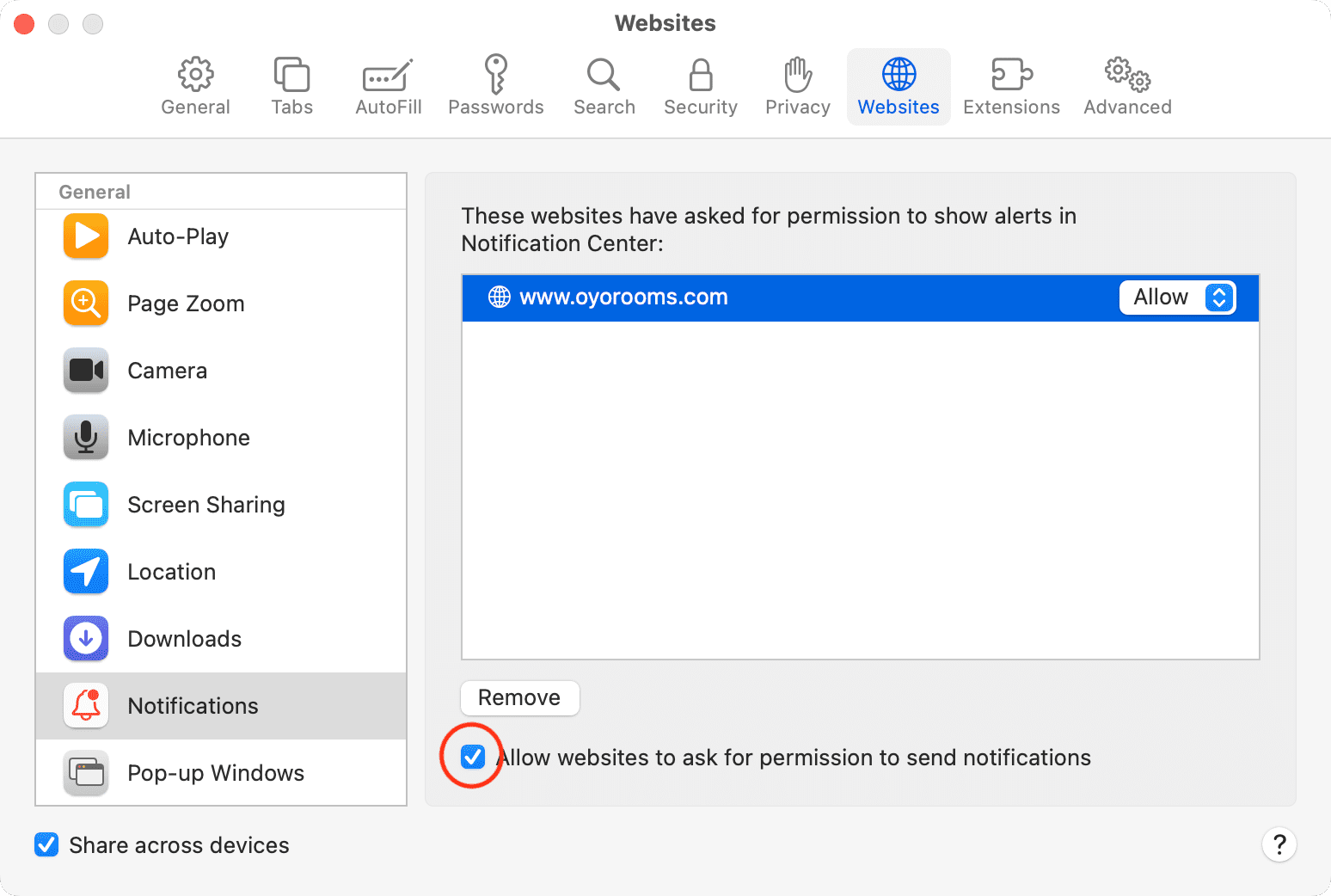
Chrome: Open Chrome and click Chrome > Settings from the top menu bar. Select Privacy and security > Site settings > Notifications and check the box for ‘Sites can ask to send notifications.’
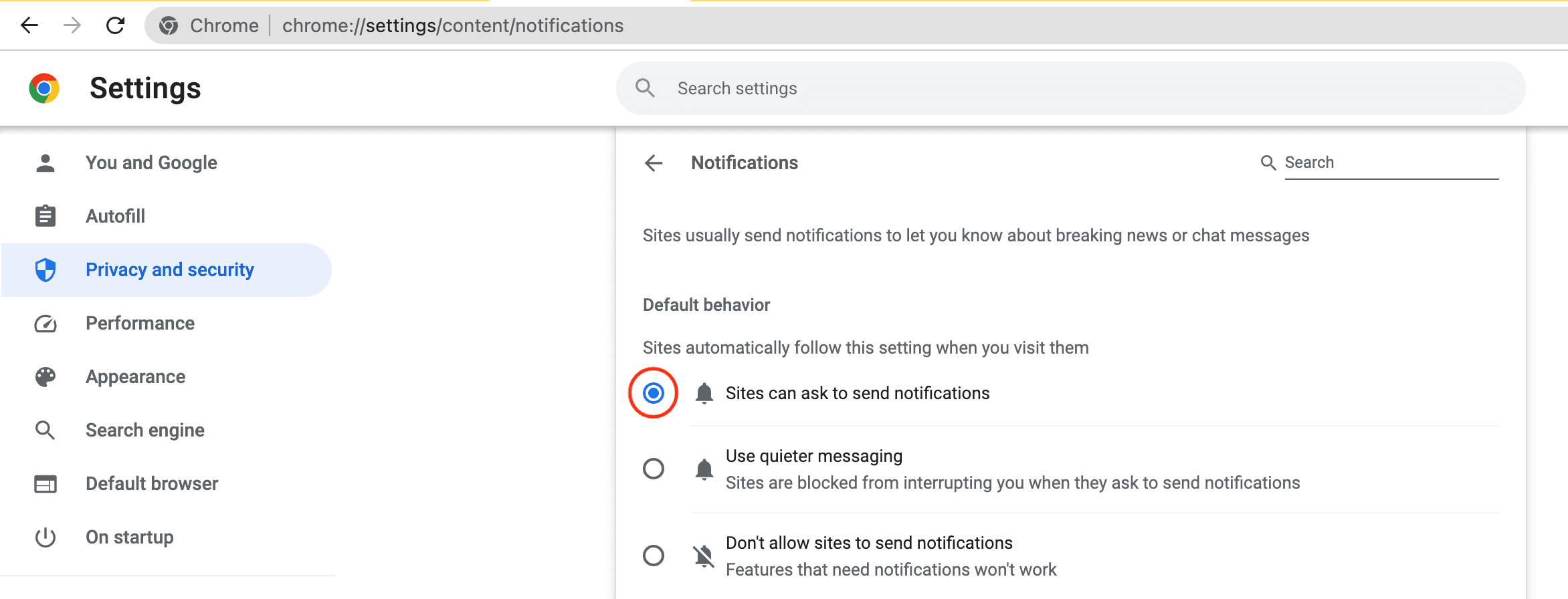
Firefox: Open Firefox and click Firefox > Settings from the menu bar. Now go to Privacy and Security > scroll down to Permissions and click Settings next to Notifications. Finally, uncheck the box for ‘Block new requests asking to allow notifications.’
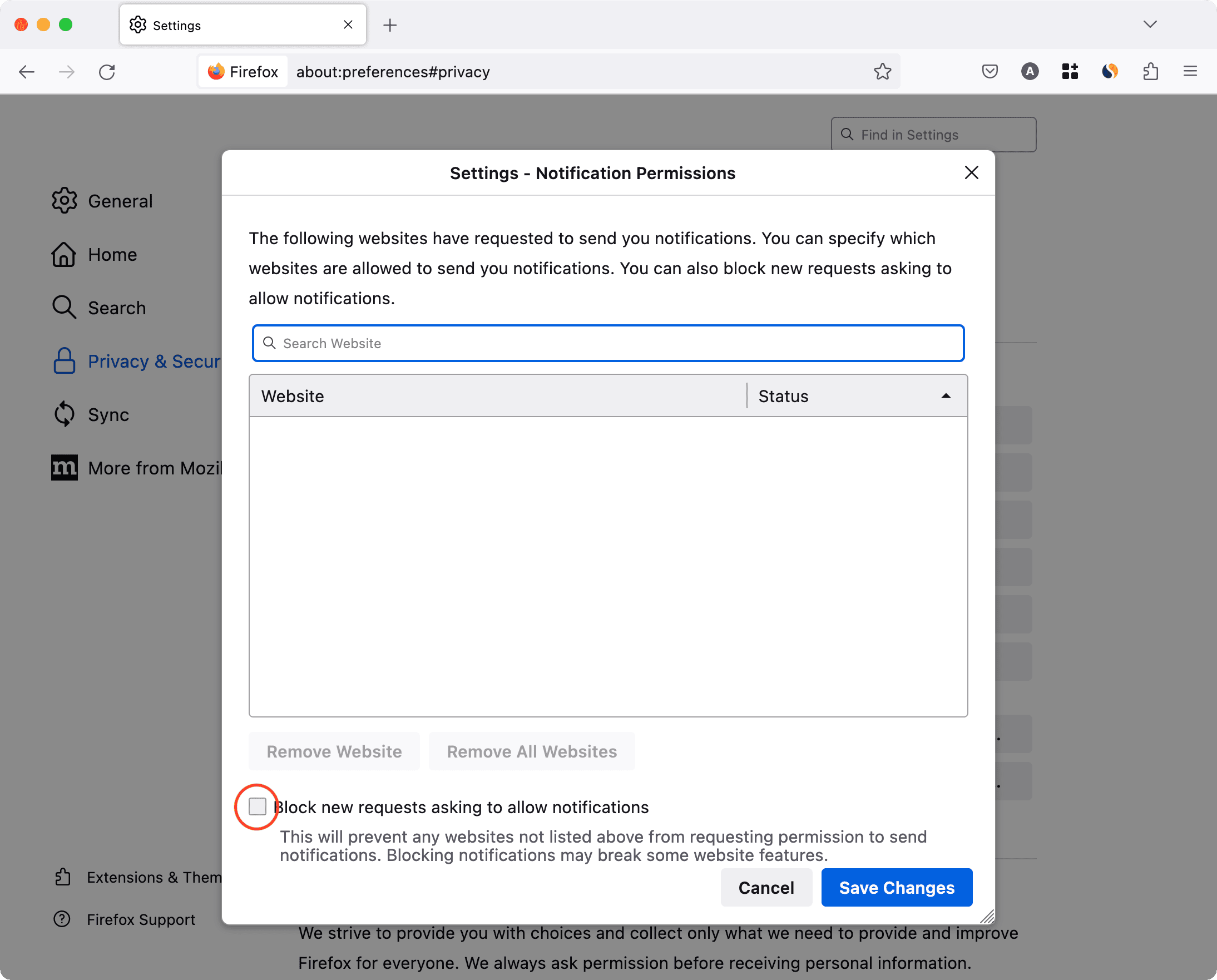
For specific websites
I use Slack inside Chrome on Mac. Now, I will only be alerted if I allow Slack’s website to send me notifications. You can quickly check and fix whether a website is allowed to send notifications by going to the browser notification settings (explained above) or via these steps if you use Google Chrome:
- Visit the website and click the tiny padlock icon from the address bar.
- From here, enable the switch for Notifications.
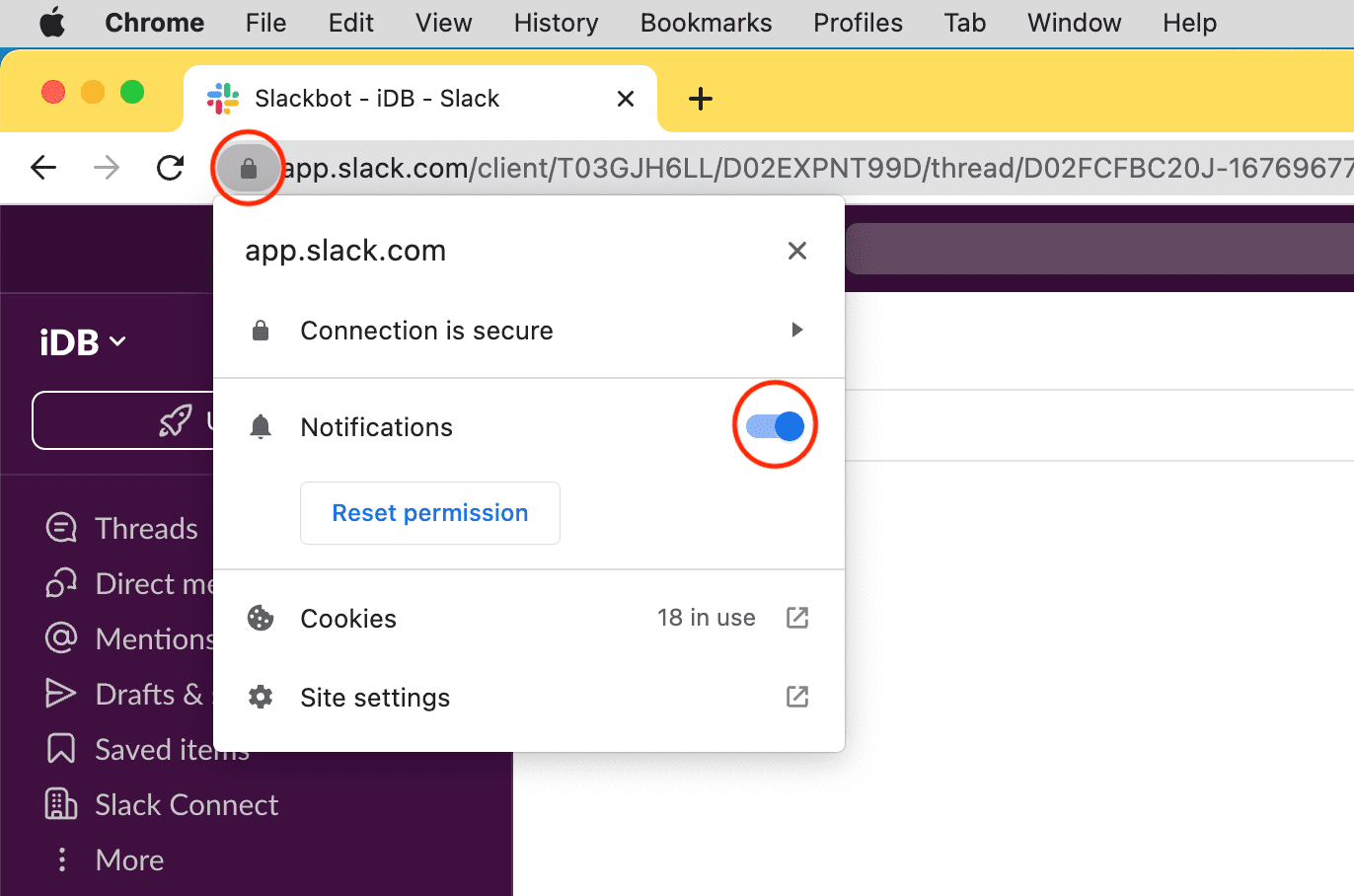
Note: If you don’t see the Notifications option, that means this site can’t send notifications, or it has never asked for your permission to send them.
Increase your Mac’s system volume
You may not hear new notifications if your Mac’s volume is set to a very low level. To fix this:
- Use the volume key on your keyboard to increase it.
- Open Control Center and drag the Sound slider to the right.
- Or, go to System Settings > Sound and drag the Output volume slider to the right. While you’re here, make sure the Mute box isn’t checked.
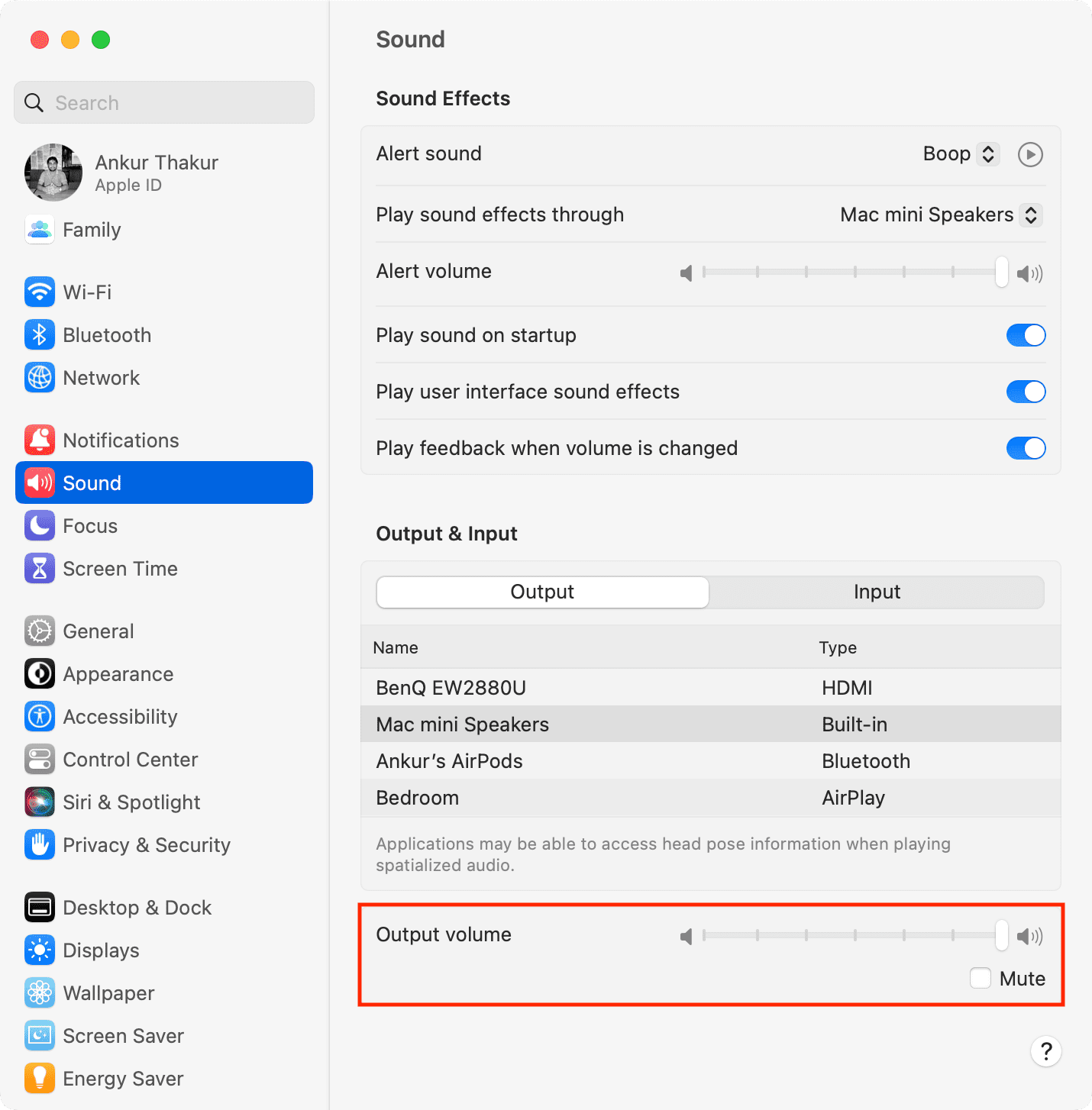
Note:
- If the volume slider is grayed out, select another speaker under the Output heading above. And after that, reselect the previous output speaker.
- You may not be able to change and control your Mac’s output volume if you have selected some external speaker like the connected third-party monitor’s speaker.
Check the sound output speaker
Every Mac, including Mac mini and Mac notebooks like MacBook Pro and MacBook Air, has one or more built-in speakers. By default, the built-in speaker should be selected as the sound output.
But if you get no notification sound on Mac, make sure you have selected the right output channel:
- Go to System Settings and click Sound.
- Click the drop-down menu next to ‘Play sound effects through‘ and select your Mac’s speaker or one connected to it and working properly.
- Next, select the built-in Mac speaker or any other working speaker under the Output heading.
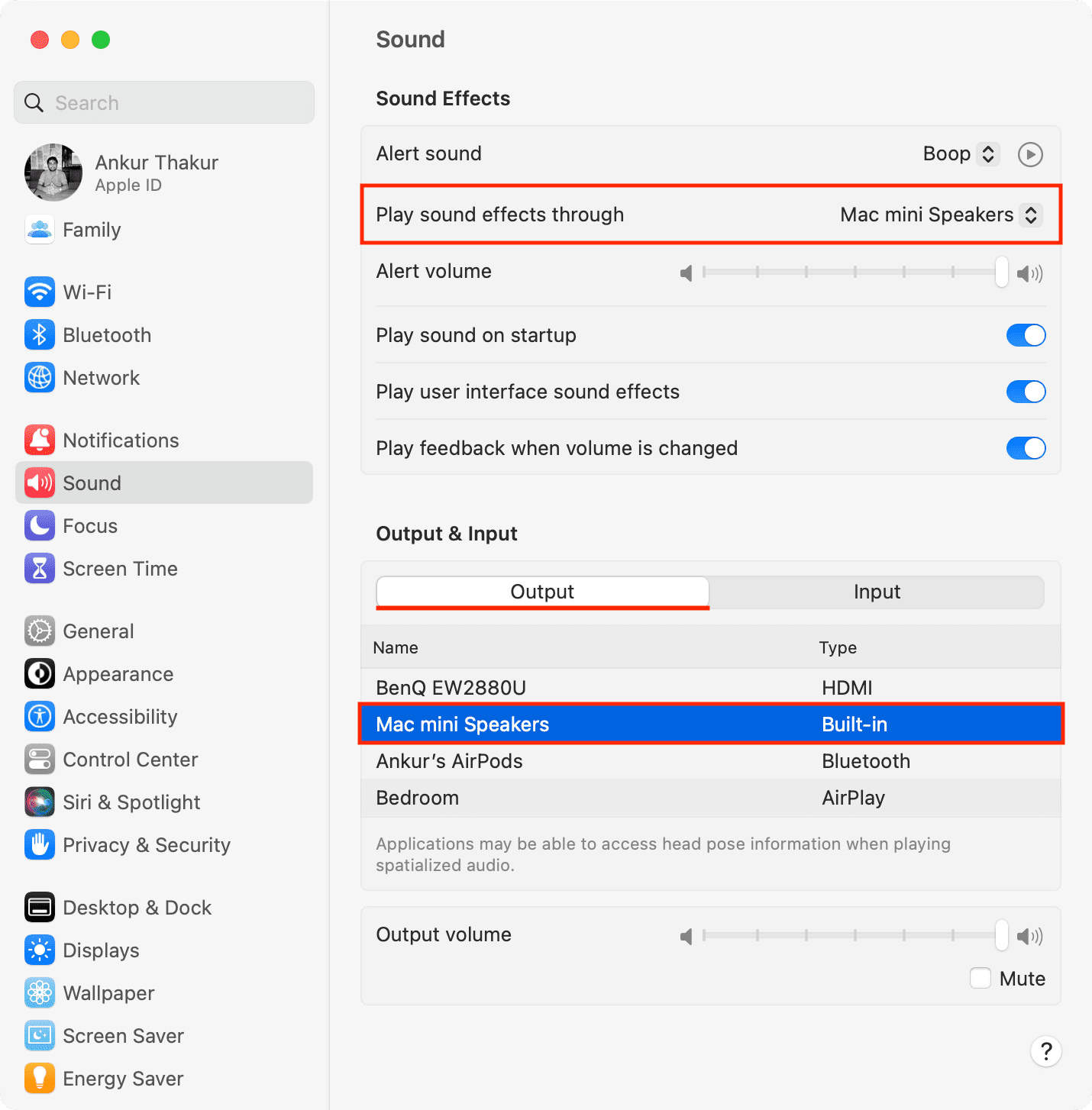
Restart your Mac
It’s also possible that your Mac may not send new notifications due to temporary glitches. You can fix this by restarting your computer ( > Restart).
Update Mac apps
Are you getting notification banners and sound from most apps except a few? In that case, update those misbehaving apps.
Delete and reinstall the app
If updating doesn’t solve the problem, delete and reinstall the app.
Important: When you open the app for the first time, you will see a banner in the top right corner of your Mac’s screen asking to send notifications. Make sure you click Options > Allow.
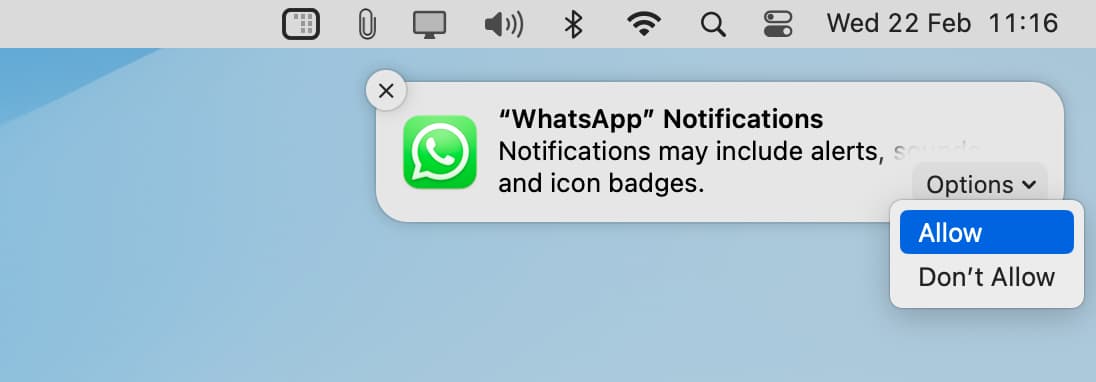
Turn off Low Power Mode
In rare cases, you may get no new notifications, or it may be delayed because your MacBook is in battery-saving mode. To solve this, turn off Low Power Mode on your Mac by going to System Settings > Battery.
Source : idownloadblog.com

